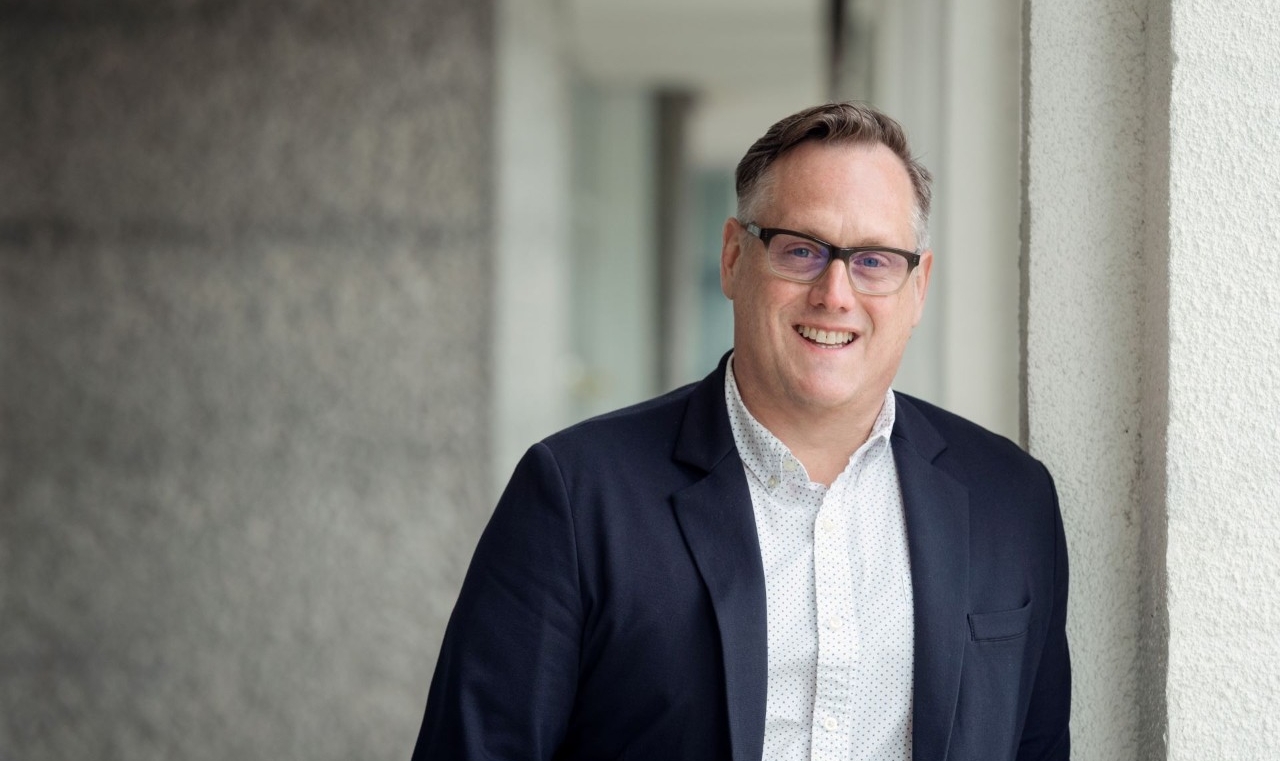From Lululemon to a new performance-apparel startup: Meet Concordia grad Darrell Kopke
 Darrell Kopke, BComm 93, serves as an adjunct professor at the University of British Columbia’s Sauder School of Business, where he helps lead the school’s Creative Destruction Lab (CDL).
Darrell Kopke, BComm 93, serves as an adjunct professor at the University of British Columbia’s Sauder School of Business, where he helps lead the school’s Creative Destruction Lab (CDL).
In the fast-paced world of entrepreneurship and business innovation, Darrell Kopke, BComm 93, has been a trailblazer whose time at Concordia helped lay the groundwork for his success.
That success includes a notable contribution to Lululemon’s transformation from Vancouver startup to athletic-apparel juggernaut.
Of his years as a Concordia undergraduate in the 1990s, Kopke says: “The most impactful experiences were my roles on the executive team of the Commerce and Administration Students’ Association (CASA) and as president of the Commerce Marketing Student Association. Organizing activities, balancing budgets, engaging with my peers, and attending pan-university events was such great experience that helped shape me as a future leader.”
Kopke currently serves as an adjunct professor at the University of British Columbia’s Sauder School of Business, where he helps lead the school’s Creative Destruction Lab (CDL). His other distinctions include a 2006 Top 40 Under 40 nod from Business in Vancouver and a 2014 B Corporation Champion Award.
The Concordia graduate recently sat down to talk about his career and his new startup venture.
Can you tell us about your work with the Creative Destruction Lab? How does the lab’s mission connect to your experience as an entrepreneur?
Darrell Kopke: The CDL is a seed-venture development program for massively scalable deep-tech ventures that exist for the betterment of humankind. We support startup founders who want to commercialize their technology to solve existential issues — whether the climate crisis, incurable diseases, innovations in sustainable minerals exploration, alternative energy and many more.
The way we do this is by matching mentors, themselves entrepreneurs who have owned, operated and exited ventures, with these startup founders to support, to name only a few, their market entry, financing and regulatory pathways. Bearing witness to years of entrepreneurial wisdom benefits not only those deep-tech founders but everyone in the room. It’s a privilege to learn from the best on a regular basis.
As someone who regularly interacts with current business students, do you observe any notable differences in the challenges they face, compared to what you encountered?
DK: When I was on the executive team at CASA, I had access to my first laser printer. It was cutting edge! These were days before the internet and its fundamental disruption on society. Later, I graduated with my MBA from UBC as the market collapsed in the late 1990s.
Today, students are digital natives and my focus is more on delivering the human lessons of business in the face of AI and GPTs that can write business plans in seconds. Judgment has never been more important for those beginning their careers. Opportunities are global and many traditional industries are facing upheaval at an unprecedented pace.
Now more than two decades removed from your start at Lululemon, how do you see that formative experience?
DK: I take great pride that I played a pivotal role in the early growth of a legacy Canadian company. Having started at one store as the original general manager with a mandate to grow the company and seeing it through its first $200 million-plus in revenues, I experienced the ‘startup package’ of sleepless nights, 80-hour weeks and vacationless years first-hand.
Lululemon today is not the same as the company that I led. But it was never supposed to stay the same. A company of six people can never be the same as a company of 10,000 people and culture evolves every few hundred people at a time. Lululemon is poised to becomes the world’s largest athletic apparel company and its growth rate suggests this is possible.
You continue to be active as an entrepreneur. What keeps you busy these days, outside of your course load at Sauder?
DK: I am very excited about my startup Ædelhard, a performance-apparel company that just merged with FIBR.BIO, a synthetic-biology venture that developed a bio-based negative-carbon lycra substitute. What we will be able to deliver is a stretchy fabric alternative that eliminates the need for petroleum-based Elastane and Lycra while reducing the carbon dioxide in the atmosphere from diverted toxic biomass.
How? We can take crustacean shells and citrus peels and ferment them into stretchy fibres reducing both methane emissions and CO2. We are still in lab phase but are already generating excitement in our community. These days, I’m executive chairman of my startup and stay full-time at UBC Sauder. It’s a fun balance and a full life.


